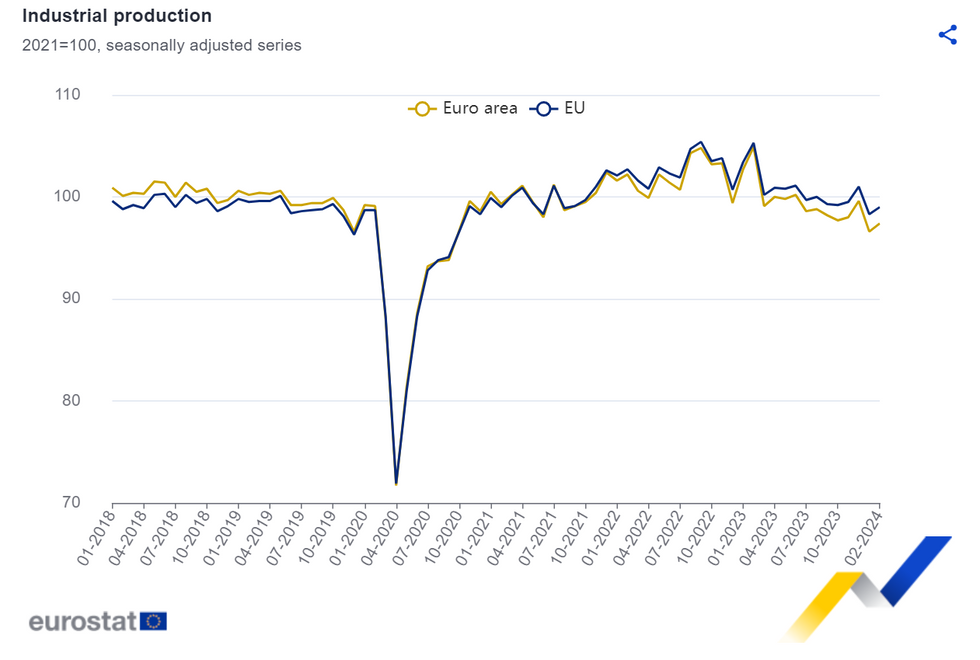-
Policy
Policy
Exclusive interviews with leading policymakers that convey the true policy message that impacts markets.
LATEST FROM POLICY: -
EM Policy
EM Policy
Exclusive interviews with leading policymakers that convey the true policy message that impacts markets.
LATEST FROM EM POLICY: -
G10 Markets
G10 Markets
Real-time insight on key fixed income and fx markets.
Launch MNI PodcastsFixed IncomeFI Markets AnalysisCentral Bank PreviewsFI PiFixed Income Technical AnalysisUS$ Credit Supply PipelineGilt Week AheadGlobal IssuanceEurozoneUKUSDeep DiveGlobal Issuance CalendarsEZ/UK Bond Auction CalendarEZ/UK T-bill Auction CalendarUS Treasury Auction CalendarPolitical RiskMNI Political Risk AnalysisMNI Political Risk - US Daily BriefMNI Political Risk - The week AheadElection Previews -
Emerging Markets
Emerging Markets
Real-time insight of emerging markets in CEMEA, Asia and LatAm region
-
Commodities
-
Credit
Credit
Real time insight of credit markets
-
Data
-
Global Macro
Global Macro
Actionable insight on monetary policy, balance sheet and inflation with focus on global issuance. Analysis on key political risk impacting the global markets.
Global MacroDM Central Bank PreviewsDM Central Bank ReviewsEM Central Bank PreviewsEM Central Bank ReviewsBalance Sheet AnalysisData AnalysisEurozone DataUK DataUS DataAPAC DataInflation InsightEmployment InsightGlobal IssuanceEurozoneUKUSDeep DiveGlobal Issuance Calendars EZ/UK Bond Auction Calendar EZ/UK T-bill Auction Calendar US Treasury Auction Calendar Global Macro Weekly -
About Us
To read the full story
Sign up now for free trial access to this content.
Please enter your details below.
Why MNI
MNI is the leading provider
of intelligence and analysis on the Global Fixed Income, Foreign Exchange and Energy markets. We use an innovative combination of real-time analysis, deep fundamental research and journalism to provide unique and actionable insights for traders and investors. Our "All signal, no noise" approach drives an intelligence service that is succinct and timely, which is highly regarded by our time constrained client base.Our Head Office is in London with offices in Chicago, Washington and Beijing, as well as an on the ground presence in other major financial centres across the world.
Real-time Actionable Insight
Get the latest on Central Bank Policy and FX & FI Markets to help inform both your strategic and tactical decision-making.
Free AccessIP M/M Improvement Broadbased Although Y/Y Remains Weak
Eurozone industrial production rose in-line with expectations in February at 0.8% M/M (vs 0.8% M/M consensus) with the prior revised up slightly to -3.0% M/M prior from -3.2% M/M. The annual reading however, was weaker than expected, at -6.4% Y/Y (vs -5.5% Y/Y consensus, -6.6% Y/Y prior revised from -6.7% Y/Y).
- The February monthly rise is somewhat driven by Ireland, which saw production rise +3.8% M/M after a huge fall of 26.9% M/M in January - once again making it difficult to read a signal from the aggregate figures.
- Looking at the largest members of the Eurozone, results were mostly positive: With Germany (+1.1% M/M), Spain (+1.3% M/M), France (+0.2% M/M), Italy (+0.1% M/M), and the Netherlands (+0.8% M/M) all seeing production rise M/M. Whilst, Belgium (-2.7% M/M) saw its second consecutive monthly production decline.
- From a sectoral perspective, 3 of 5 sub-components rose. Specifically, the M/M rise was driven by a gain of +1.4% M/M in Durable consumer goods (vs -1.2% M/M prior), followed by a rise of of 1.2% M/M in Capital goods production (vs -15.5% M/M prior), and +0.5% M/M in Intermediate goods - the 2nd gain in Intermediate goods since September.
- Meanwhile, Energy production fell for the first time since September 2023 by 3.0% M/M, and Non-durable consumer goods fell for the 3rd consecutive month by 0.9% M/M.

To read the full story
Sign up now for free trial access to this content.
Please enter your details below.
Why MNI
MNI is the leading provider
of intelligence and analysis on the Global Fixed Income, Foreign Exchange and Energy markets. We use an innovative combination of real-time analysis, deep fundamental research and journalism to provide unique and actionable insights for traders and investors. Our "All signal, no noise" approach drives an intelligence service that is succinct and timely, which is highly regarded by our time constrained client base.Our Head Office is in London with offices in Chicago, Washington and Beijing, as well as an on the ground presence in other major financial centres across the world.
